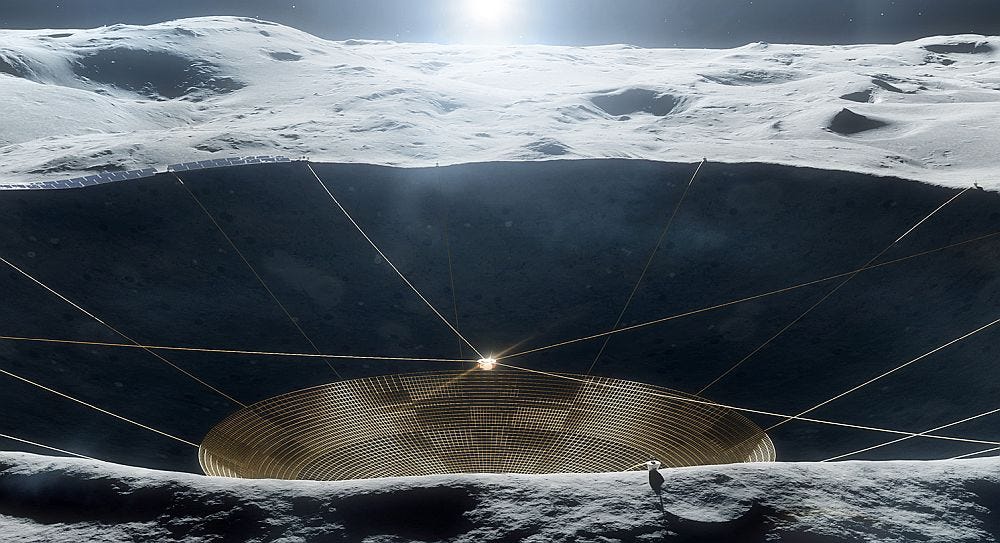What is the Lunar Crater Radio Telescope? - The Cosmic Companion May 8, 2021
A revolutionary new radio telescope is being envisioned for the far side of the Moon.
The Lunar Crater Radio Telescope would allow astronomers to study the cosmic dark ages for the first time.
Following the Big Bang, our budding Universe slowly cooled, and the first atoms took shape. Gravity gradually pulled on clumps of hydrogen and helium gas, forming the earliest stars. This era, lasting a few hundred million years prior to the large-scale formation of stars, is called the cosmic dark ages.
The Lunar Crater Radio Telescope (LCRT), an ambitious concept to place a massive radio telescope on the far side of the Moon, would study the Universe during this ancient era in detail for the very first time.
“While there were no stars, there was ample hydrogen during the universe’s Dark Ages — hydrogen that would eventually serve as the raw material for the first stars. With a sufficiently large radio telescope off Earth, we could track the processes that would lead to the formation of the first stars, maybe even find clues to the nature of dark matter,” explained Joseph Lazio, radio astronomer at NASA’s Jet Propulsion Laboratory and a member of the LCRT team.
Read more: https://thecosmiccompanion.net/what-is-the-lunar-crater-radio-telescope
Check out the amazing lineup of guests coming up on Astronomy News with The Cosmic Companion!
May 11 (s4/e19): Dr. Jack Hughes, astrophysicist at Rutgers University, discussing new findings about supernovae.
May 18 (s4/e20): NASA’s Scott Lambros, Instrument Systems Manager for the James Webb Space Telescope, tells us about this remarkable observatory.
May 25 (s4/e21): The Interstellar probe – exploring space between the stars with Dr. Elena Provornikova from Johns Hopkins University Applied Physics Laboratory
June 1 (s4/e22): ~just added~ Using computer modeling to peer inside the atmosphere of Saturn with Dr. Sabine Stanley of Johns Hopkins University.
Remember - VIP subscribers see every episode of this show a day before the general public!
For more details on space and astronomy news, please visit: thecosmiccompanion.net or thecosmiccompanion.com.
Thanks for reading, donating, and sharing!
- James




